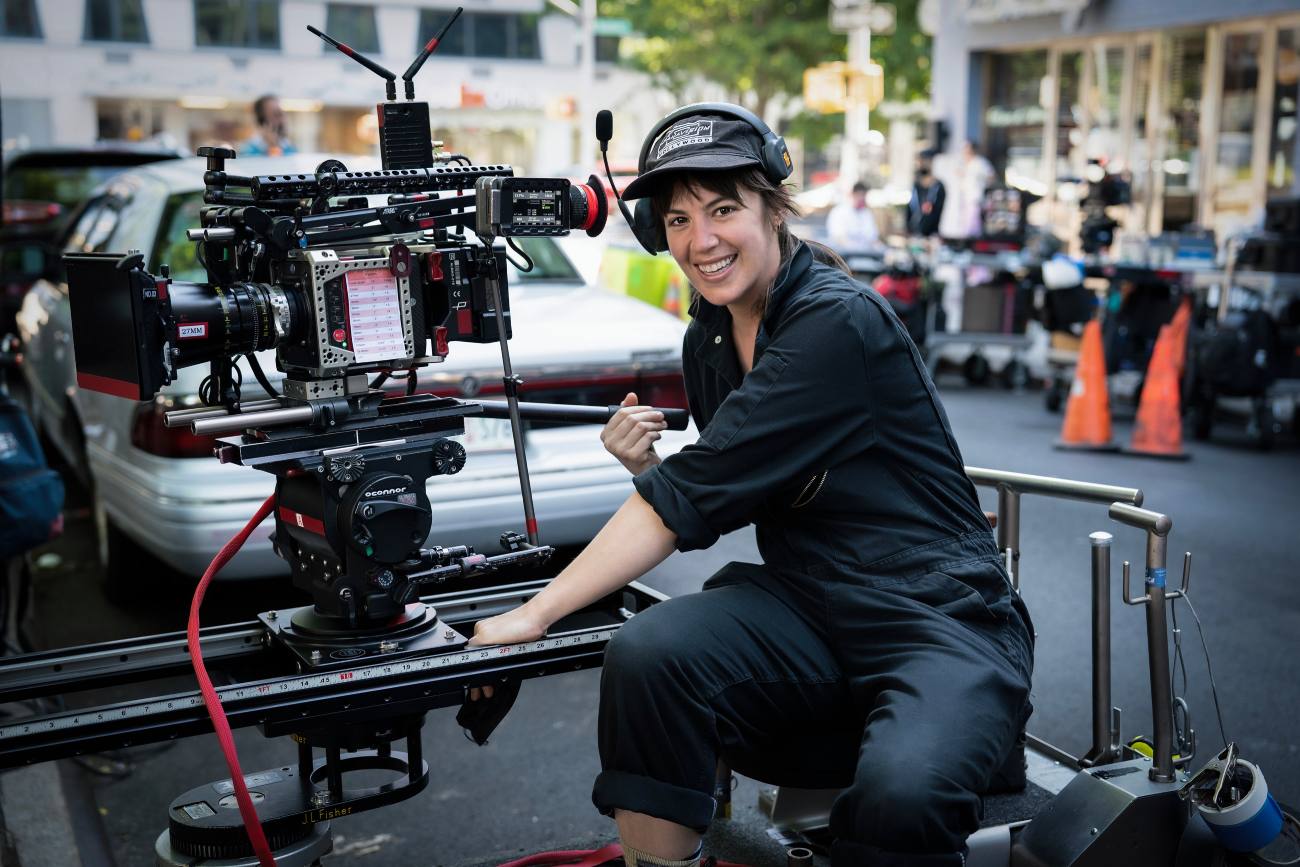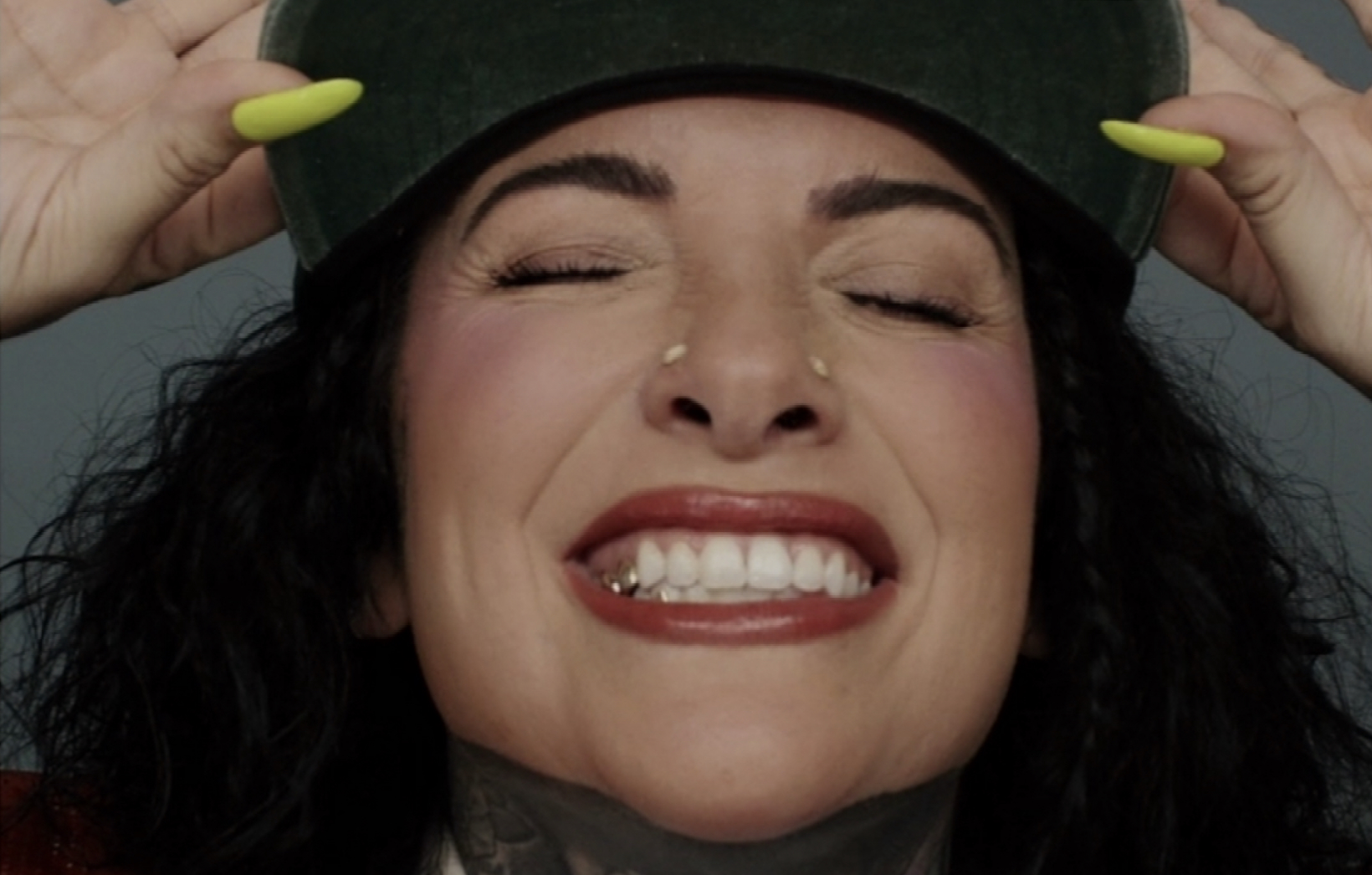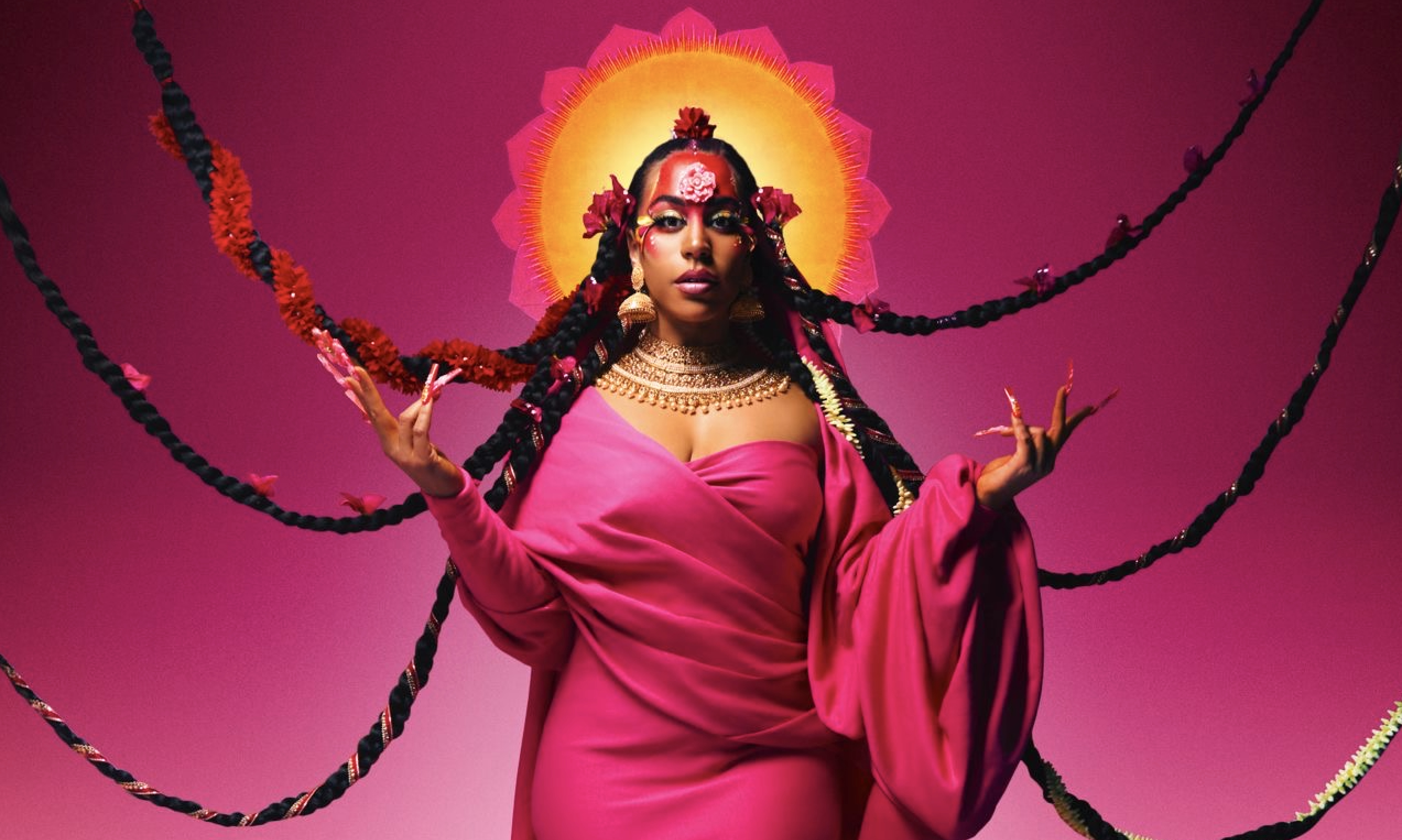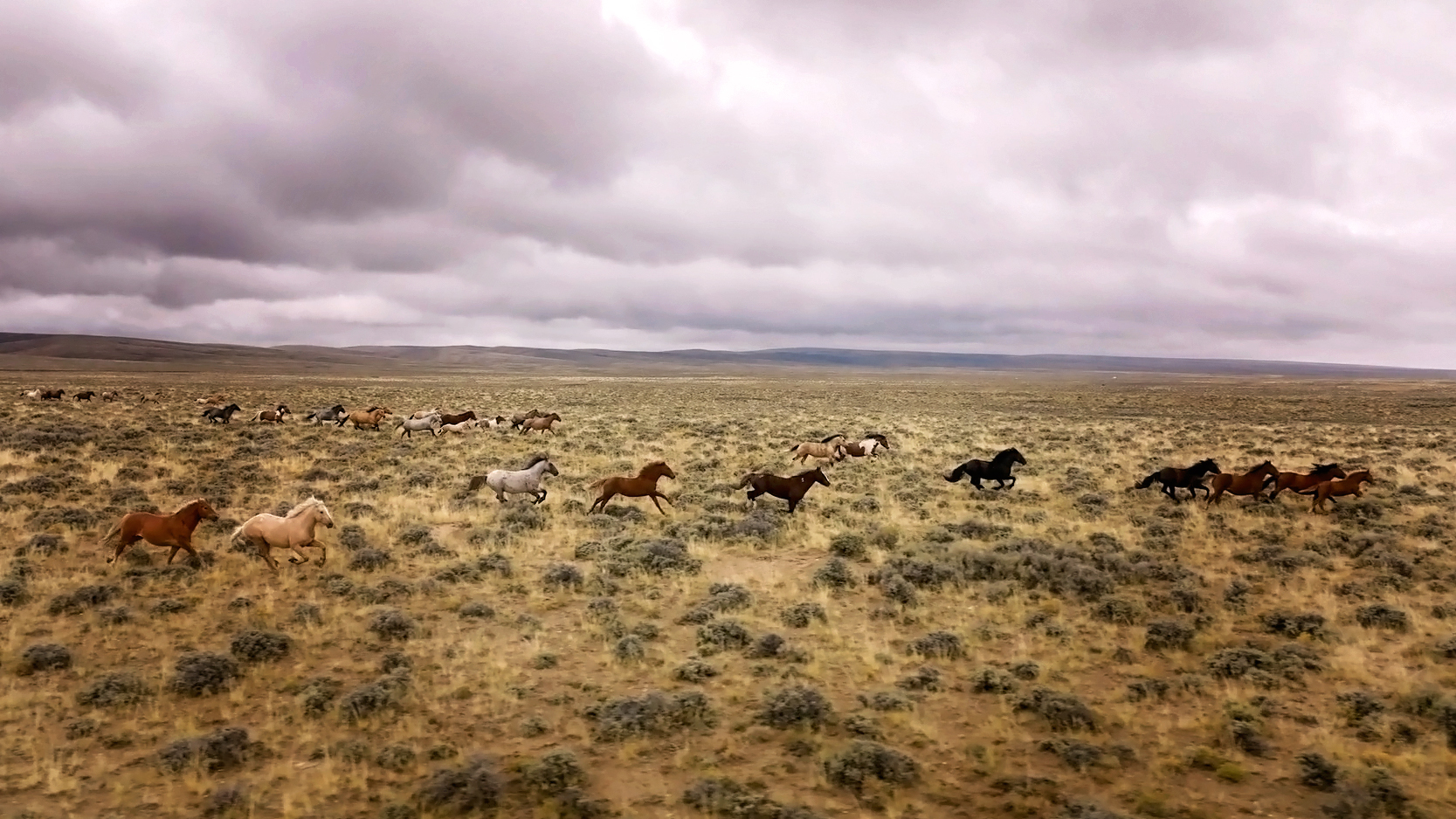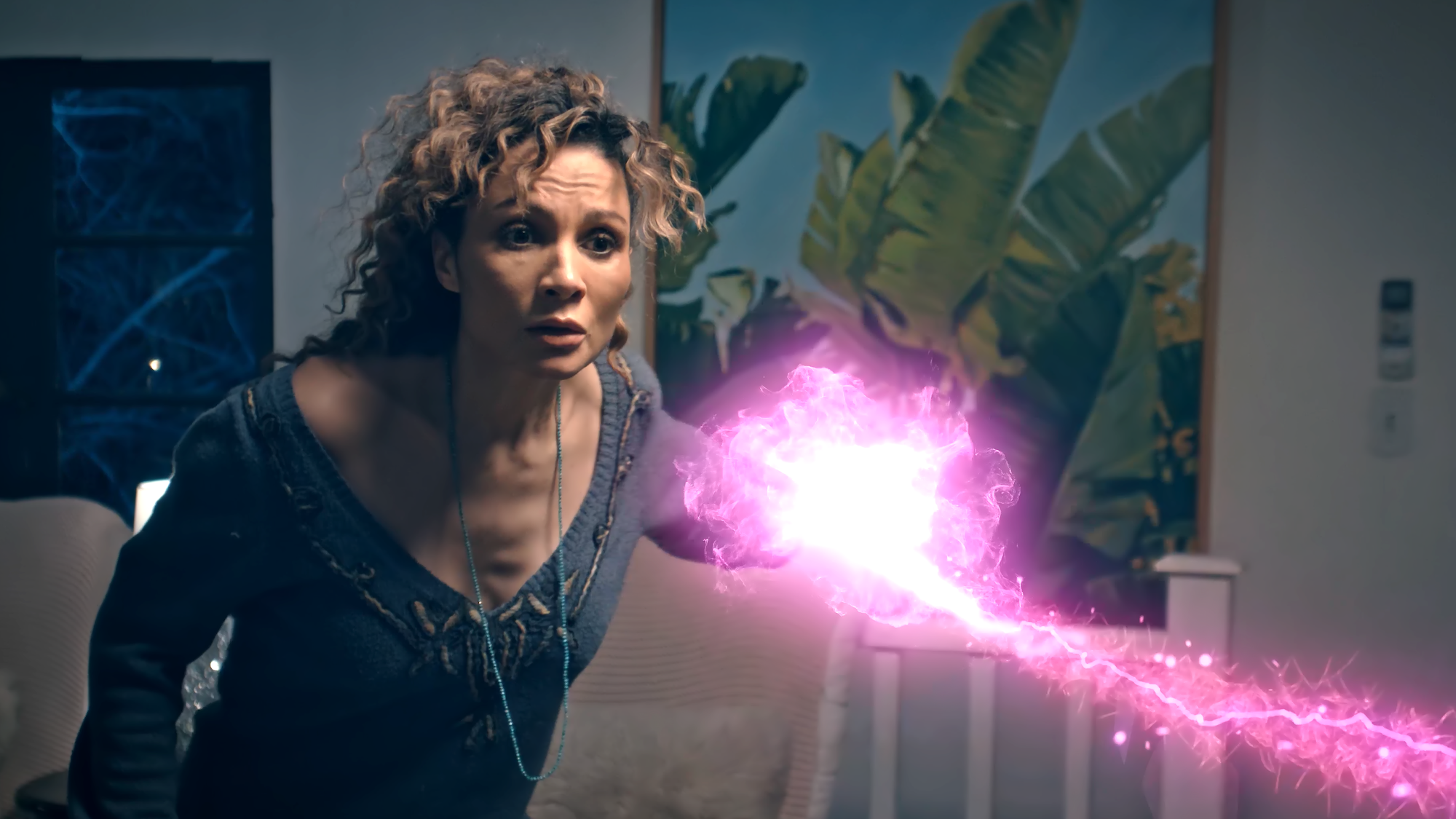
In a man’s world, a woman has to make some noise to be seen and heard. That’s exactly what teenage concert promoter (yes, you read that right!) Vera Brandes did, breaking a few rules along the way to become the woman responsible for an iconic musician’s now-legendary performance.
‘Köln 75’, from filmmaker Ido Fluk and Zeitgeist Films, opens in NYC October 17, and in Los Angeles 24. Keith Jarrett’s legendary performance in January 1975 nearly didn’t happen. Based on a true story, ‘Köln 75’ follows how the concert was conceived and orchestrated by the efforts of a teenage up and coming concert promoter, Vera Brandes, (played by German actress Mala Emde).
Her enthusiasm set her to multitasking – from organizing the concert venue (the Cologne Opera House), promoting the event, and selling the tickets, to convincing Jarrett to perform when he almost dropped out when the Bösendorfer Imperial Grand piano he was promised was nowhere to be found. John Magaro plays Jarrett with his own intensity, a sublime counterpoint to Mala Emde’s joyful portrayal of the enthusiastic and unstoppable Vera.

‘Köln 75’ captures the compelling, entertaining and, until now, unknown back story about Jarrett’s one-hour, entirely improvised concert, which became the best-selling solo album in jazz history.
At a time when audiences are looking for more untold stories about badass women who make history and the necessity of amplifying them in our current world, we had the opportunity to interview the real life Vera Brandes herself to learn more about her involvement with the film, what she was excited most about with regard to her story being told on the big screen, and what she hopes women and girls watching will take to heart.
What was it like to see your incredible life story on the big screen, made into a feature film?
It made me feel very proud, particularly because the actors in the movie were so fantastic, and Mala Emde was so into it and so credible and so much like I was back then.
It is amazing. It was the beginning of a very deep connection between us that continues to unfold. So when I saw it first, I was just taken by the way Ido had put it all together. I loved the speed of the movie, I loved the many different turns and angles that it took. And Ido Fluk, the director, really wanted to create something that reflected the times, reflected how I was. I think he couldn’t have done a better job.
Where did this journey begin – How did director Ido Fluk first get in touch with you and approached you about the idea?
It must have been five years ago. My cell phone rang, but it wasn’t Ido, it was Sol Bondy, the producer. He opened the conversation, of course, first making sure I was Vera Brandes and then he just said “We would like to turn the story about the Köln concert into a movie. What do you think about this idea?”
I didn’t immediately answer. I did what you normally do when you are in a recording studio. You play that take back and back and back and again and again. So internally, that’s what I did. I rewound and listened internally to what he just said, trying to figure out from the sound of his voice. Is this guy serious? Does he really know what he’s talking about? Is what I hear on the level of professionalism, I would love for it to all happen if it happens. So, can I trust him? Will he respect me?
All of these questions that subconsciously were flying through my head, trying to get an answer just by remembering the sound of his voice when he said what he said, because I didn’t want to ask him these questions.
I reacted like this because I know, if you start a project with doubts, it’s not a good start. So, after a long deep breath, leaving it up to my subconsciousness to decide how to answer, I heard myself say “Finally!”. And that was, of course, a courageous jump into the unknown for me and a big relief for him because the project, without me agreeing to it, couldn’t have happened. And hearing that I had been waiting, I realized that this story should be told.
I didn’t meet Ido until a while after this first conversation with Sol, when we first started to speak on Zoom or Skype about all of his questions and me telling him the story in my own words. Endless hours of conversations, which were, actually, a lot of fun. So, this is how it all began.


How involved were you creatively throughout the script process, as well as production?
Well, as I just said, it all began with a series of long conversations, Ido being in New York, me sitting in my home in Europe, and we talked. He recorded it, and I just told him the story, and surprisingly, I recalled a lot of the details – certainly not all of them, but enough for him to really understand what this whole world and life in Cologne at that point in time was like and how it happened that I was able to do what I did. That was the story, and he turned it into a fantastic script. I was not involved in writing this script. This was all his work.
I was also not involved in making the movie. This was the work of One Two Films. The producer, Sol Bondy, his partner, Fred Burle. They are fantastic. The team of that company, the crew, the staff they hired. I couldn’t have hoped for a better producer. I couldn’t have hoped for a better outcome. When the script was ready and they gave it to the agents of the actors they were dreaming of, they all instantly said yes. Everybody wanted to be part of this movie. And this is why it’s so great, because not only the script is so brilliant, but the actors are just incredible.
Although the story is set in 1975, the notion of women paving new pathways in a male dominated world is still a relatable storyline in 2025. What were some of the most challenging aspects for you throughout your career?
Wow! I have to take a deep breath before I answer this because it is a difficult thing to answer.
I was once asked by an insider: Vera, are you really sure? Do you really want this movie to happen? How could someone possibly reduce your entire life’s work to that one moment, that one concert? Yes, certainly, that was an important concert, but compared to all of your other accomplishments in your career, are you really sure you want this to be reduced to this one concert? And my answer to that question was: Well, we have to start somewhere, don’t we? It’s at least a good way to begin telling my story.
He laughed, and when I later learned that OneTwo Films succeeded in getting the funding to make the movie, I was very happy because it is very difficult for independent filmmakers in Europe to get films like this funded.
I did have a big turbulent career in the music industry. It was and is astounding what I was able to accomplish. The challenges were huge and sometimes terrible and sometimes even cruel. At the end, I lost my company.
And then I had a big car accident which nearly took me out. I survived. I started an entirely new career. I went back to school, studied psychology, and got my Master of Science in Information and Energy Medicine and became a researcher into frequency medicine and music therapy. I’m very proud of my accomplishments in that field as well. So, I reinvented myself. But what happened to all the work I did in the times when I was the owner of an independent record company and why it happened that I lost all of it is really a tragedy.

Telling you all of the events that happened which led to this would fill a whole book, so I won’t bore you with it here. But I can only tell you that being a woman in this business who was able to create such an impressive abundance of projects and recordings and successes, I think everybody that saw me doing what I was doing, who wanted to do the same thing, was very jealous. And that jealousy was the hardest and the toughest part of the whole story for me to deal with and it’s still prevalent today.
My success encouraged a lot of people that crossed my path to think, we can take that away from her. And that happened a lot. And that was very painful. I can now say that I do understand women that are very tough in their behavior because probably they experienced the same thing, and probably they decided that they were just going to be standing strongly for themselves. With what I had experienced in my life, I didn’t think I had the right to do so. I.e. I never got a cent for the Köln concert album.
My attorney at that early phase in my music industry career tried to come to an arrangement with the label about it, but it was made very clear to me that if I would to follow up on it, because legally I was entitled to receive a numeration, they would make sure this is the end of my career in the music industry. So, I didn’t pursue it. It’s just one example, one example of being taken advantage of.
Now, we’re writing in the year 2025, and women in the entertainment industry have been speaking up and standing up for themselves for the past decade. So I’m not an exception. Life in the entertainment industry, being a woman, is a different thing than being a man. And I think we all know that.
But this is only one side of the story because the other side of the story is that I also received a lot of support and without that support – more so from men than from other women simply because there were not a lot of women in the industry at that time – I would not have been able to do anything.

What was it about Keith Jarrett that drew you to his music and want to help him get to the stage in 1975?
That’s an easy one. Freedom! Freedom of expression. He just played what he wanted. Not that he didn’t acknowledge that he was standing on the shoulders of some giants that took the same road before him, but he invented himself so many times, again and again. And the tenderness with which he did it, really, really touched me. And the intelligence with which he did it really, really spoke to me. So how could I not?
That is the answer. I mean, listening to what he was doing, crystal clear, he deserved to be really have been heard by a big audience. And every artist I worked with before him and after him, it was the same motivation. I loved what they were doing, and I just wanted them to be heard by the biggest possible audience.
Were there any aspects of the film version of your story that differed with the real life version?
I gave Ido complete freedom. He had to twist the story in order to make a movie out of it at a few points, which is normal if you want to put something into the length of a film, which actually stretches over a much longer period of time. The necessary compression always requires some of these twists.
My father’s speech on my 50th birthday was slightly different and expressed more of his jealousy and narcissism than the harsh criticism and his judgment, but that was always there with some phases in our relationship after the death of my mother, where things temporarily changed. But basically, it expressed very clearly what my father had decided to think about me.
And my conversation with Keith, that convinced him to play, in reality was a different one. It took place in a car, not in the hotel room. But again, for the audience to understand what this all was about, and for Mala to be able to play it and to show what it took to stand up to this man in that situation, Ido did a fantastic job.
I didn’t pick up guys in bars that I didn’t know and took them home into my bedroom. I was very clear about not behaving this way because I knew it would jeopardize my authority in the music industry. So I stayed away from those types of behavior. But yes, it would have been completely normal. In the mid ’70s, life was completely different, and sexually, things were extraordinary liberal. I didn’t ask Ido to take it out because it was part of his description of how free Vera was, and therefore, I liked it to be in there.
The film is amazingly close to how things happened. So close that when I was at the set, when the first scenes were shot with Uli Tukur, who plays my father, and when I saw them playing the scenes and repeating and repeating them, I had to leave because I was like paralyzed. The fear that I was experiencing back then began to crawl through my feet into my bones, and I was close to throwing up. It was so authentic that I could not bear with it, I had to leave.

What do you hope audiences, especially young female audiences, who watch the film will remember about your story?
Never give up. Giving up is not an option. Just believe in yourself. Carry through. Find solutions. Be creative. Be persistent. Don’t accept a “no” for a no. Clichés, one after the other, I just mentioned. But even though they are true and they are the message of the movie, and they are my message to the people: Be smart. I was not so smart in many respects, but I was young, and what I didn’t have was a real mentor. I think that would be a wise thing to look for.
What message do you have for young women or women of all ages, who want to do something extraordinary, or take a chance on a big idea like you did?
Find somebody who is willing to tell you what he or she went through so that you may be able to avoid some of the traps that will cross your path no matter what. Today, much more so than back then, things really depend on your connections and your friendships and your relationships. Maintaining friendships and mutual relationships is what’s going to carry you through life in the end. So that’s maybe my most important message.
‘Köln 75’ Opens in NYC October 17, and Los Angeles October. Find all screening dates HERE. Learn more about Vera Brandes on her website.












